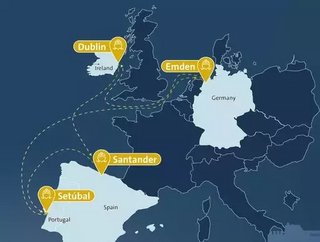Volkswagen: driving climate protection in freight logistics

In an announcement made by Volkswagen Group, the company reports its plan to further drive climate protection by using certified fuel from vegetable residue for certain new car shipments on marine routes.
Produced from materials such as used oil from restaurants and the food industry, the company re-fuelled for the first time with this oil in mid-November, a second ship is due to do the same at the beginning of 2021.
“We are the first automaker to make widespread use of this fuel. This way, we reuse waste oil in an environmentally compatible way. With 85 percent lower CO2 emissions than with conventional fossil fuels, the contribution to climate protection is enormous,” commented Thomas Zernechel, Head of Volkswagen Group Logistics.
For its European shipments, Volkswagen Group Logistics charters two vessels continuously. The vessels carry up to 3,500 vehicles from Emden via Dublin (Ireland), Santander (Spain) and Setubal (Portugal) back to Emden roughly 50 times a year. In total their journeys will carry 250,000 new vehicles including AUDI, SEAT, ŠKODA, Volkswagen Passenger Cars and Volkswagen Commercial Vehicles.
“The two ships, which are both 180 meters long, are each powered by an MAN marine diesel with more than 19,000 PS (14,220 kW). In future, the two ships are to be refueled at sea off the coast of Vlissingen (Netherlands) with alternative fuel supplied by the Dutch company GoodFuels,” commented Volkswagen Group.
In doing this the CO2 emissions of the conventional vessels is expected to see a reduction of 85% from more than 60,000 tonnes a year to 9,000. In addition, the group will see sulfur oxide emissions almost completely avoided.
This latest change made by Volkswagen Group comes as part of its strategy to make its logistics even greener. In addition to using certified fuel from vegetable residue, the company is using liquefied natural gas (LNG) to power car freighters travelling between Europe, North America and Latin America. In addition the group is replacing all rail shipments in Germany with DB Cargo with eco-power.
“This way, Volkswagen Group Logistics is helping the Group achieve net carbon neutrality by 2050,” added Zernechel.
For more information on procurement, supply chain and logistics topics - please take a look at the latest edition of Supply Chain Digital.






